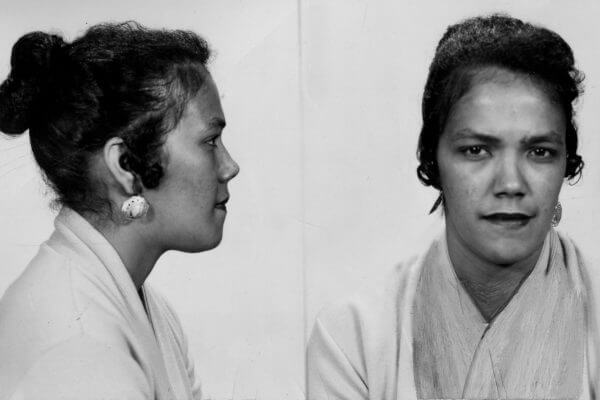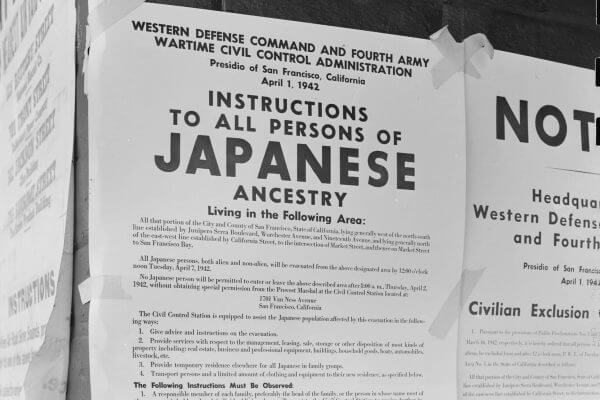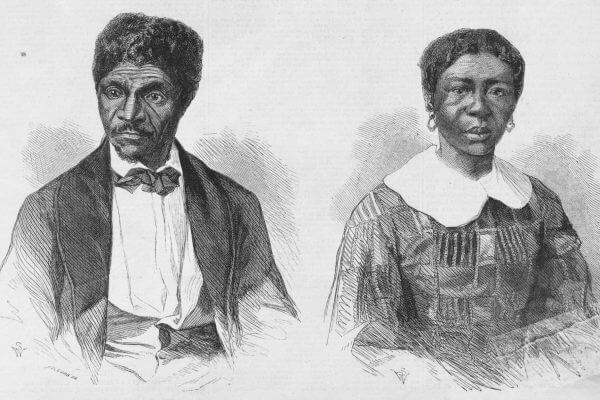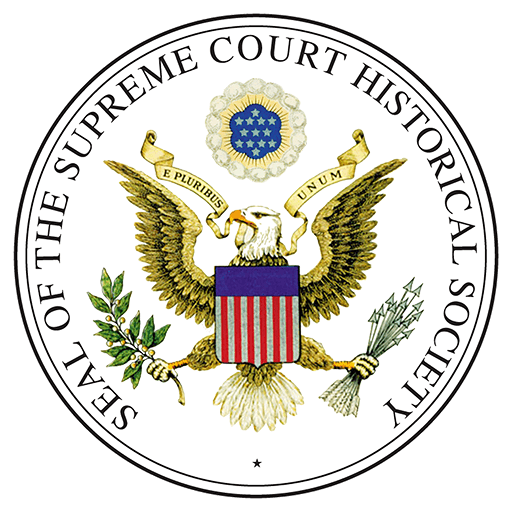
Gideon v. Wainwright (1963)
Indigent Defendants Have the Right to Counsel
Florida State Prison mug shots of Clarence Earl Gideon
Photo Credit: Florida State Prison mug shots of Clarence Earl Gideon - Raiford, Florida. 1961. State Archives of Florida, Florida Memory. Accessed 10 Mar. 2023.
Overview
In June 1961, a burglary occurred at the Bay Harbor Pool Room in Panama City, FL. Police arrested Clarence Earl Gideon after he was found nearby with a pint of wine and some change in his pockets. Gideon, who could not afford a lawyer, asked a Florida Circuit Court judge to appoint one for him arguing that the Sixth Amendment entitles everyone to a lawyer. The judge denied his request and Gideon was left to represent himself. He did a poor job of defending himself and was found guilty of breaking and entering and petty larceny. While serving his sentence in a Florida state prison, Gideon began studying law, which reaffirmed his belief his rights were violated when his request for counsel was refused. From his prison cell, he handwrote a petition asking the Supreme Court of the United States to hear his case, and it agreed. The Court unanimously ruled in Gideon’s favor, stating that the Sixth Amendment requires state courts to provide attorneys for criminal defendants facing felony charges who cannot otherwise afford counsel.

Florida State Prison mug shots of Clarence Earl Gideon
Photo Credit: Florida State Prison mug shots of Clarence Earl Gideon - Raiford, Florida. 1961. State Archives of Florida, Florida Memory. Accessed 10 Mar. 2023.
"The right of one charged with crime to counsel may not be deemed fundamental and essential to fair trials in some countries, but it is in ours. From the very beginning, our state and national constitutions and laws have laid great emphasis on procedural and substantive safeguards designed to assure fair trials before impartial tribunals in which every defendant stands equal before the law. This noble ideal cannot be realized if the poor man charged with crime has to face his accusers without a lawyer to assist him."
- Justice Hugo Black, speaking for the majority
Learning About Gideon v. Wainwright
Students
This section is for students. Use the links below to download classroom-ready .PDFs of case resources and activities.
About the Case
Full Case Summaries
A thorough summary of case facts, issues, relevant constitutional provisions/statutes/precedents, arguments for each side, decision, and case impact.
Case Background and Vocabulary
Important background information and related vocabulary terms.
Learning Activities
Teachers
Use the links below to access:
- student versions of the activities in .PDF and Word formats
- how to differentiate and adapt the materials
- how to scaffold the activities
- how to extend the activities
- technology suggestions
- answers to select activities
(Learn more about Street Law's commitment and approach to a quality curriculum.)
About the Case
- Full Case Summaries: A summary of case facts, issues, relevant constitutional provisions/statutes/precedents, arguments for each side, decision, and impact. Available at high school and middle school levels.
- Case Background: Background information at three reading levels.
- Case Vocabulary: Important related vocabulary terms at two reading levels.
- Diagram of How the Case Moved Through the Court System
- Case Summary Graphic Organizer
- Case Summary Graphic Organizer - Fillable
- Decision: A summary of the decision and key excerpts from the opinion(s)
Learning Activities
Teacher Resources
Teaching Strategies Used
Planning Time and Activities
If you have ONE day...
- Read the background summary (•••, ••, •) and answer the questions.
- Complete the Sixth Amendment Analysis if you have not yet studied the text of the Sixth Amendment.
- Complete the Classifying Arguments Activity. Discuss which arguments the students find most convincing.
- For homework, have students read the Key Excerpts from the Majority Opinion and Key Excerpts from the Concurring Opinion and answer the questions. Follow up the next day by reviewing the questions with students.
If you have TWO days...
- Complete all activities for the first day (excluding homework).
- On the second day, complete the Document Analysis: Gideon’s Petition for a writ of certiorari activity.
- In advanced classes complete the Judicial Opinion Writing Activity, or in on-level classes or middle school classes complete the Opinion Analysis activity.
- Complete the Newspaper Analysis activity.
- For homework, have students read the Key Excerpts from the Majority Opinion and Key Excerpts from the Concurring Opinion and answer the questions. Follow up the next day by reviewing the questions with students.
If you have THREE days...
- Complete the activities for the first and second days (including homework).
- On the third day, complete Right to Counsel: Quality of Representation.
- In advanced classes complete the Right to Counsel: Quantitative Analysis, or in on-level classes complete the Cartoon Analysis activity.
- For homework, complete the Inquiry-based Task: Will You Sign the Resolution?
If you have FOUR days...
- Complete the activities for the first, second, and third days (excluding homework).
- On the fourth day, complete Applying Precedents Activity: Alabama v. Shelton (2002)
- Complete the Inquiry-based Task: Will You Sign the Resolution?
Glossary
These are terms you will encounter during your study of Gideon v. Wainwright. View all Glossary terms here.
Related Cases
Legal Concepts
- These are legal concepts seen in Gideon v. Wainwright. Click a legal concept for an explanation and a list of other cases where it can be seen. View all Legal Concepts here.






